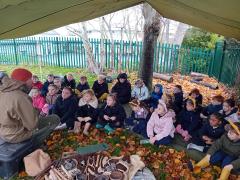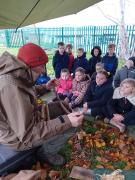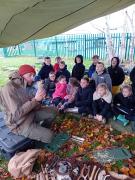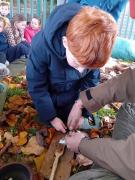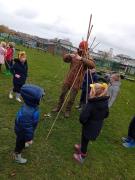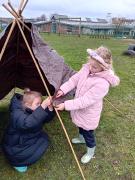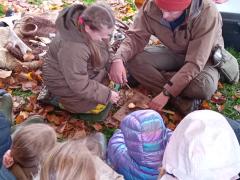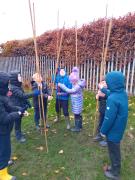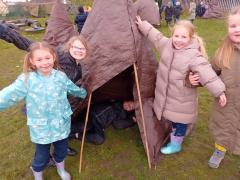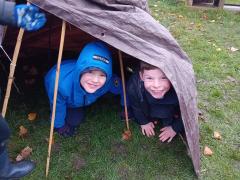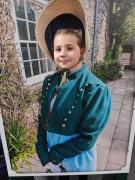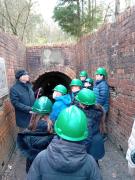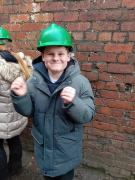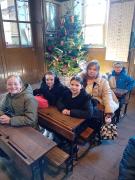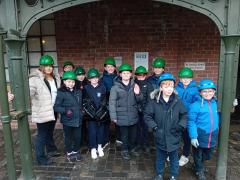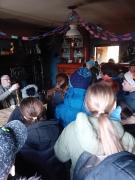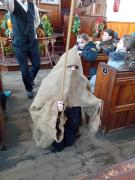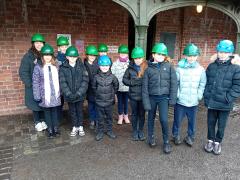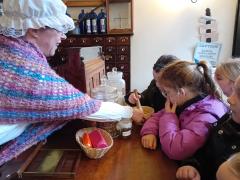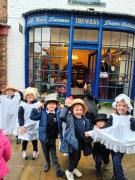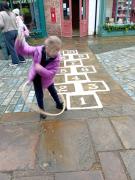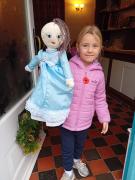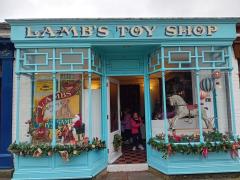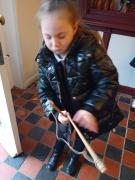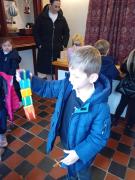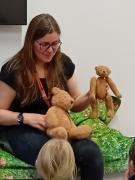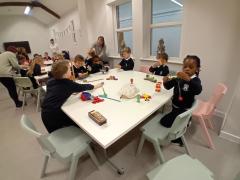History
INTENT
Our aim at Hetton Lyons is to provide an engaging and ambitious history curriculum that meets the requirements of the National Curriculum while being underpinned by our key drivers of aspiration, endeavour and expression. Through a carefully sequenced blend of substantive knowledge and disciplinary skills, we equip children with the tools they need to place their historical learning within both broad and specific contexts. Learning is built over time by revisiting and building upon prior knowledge, enabling pupils to make meaningful connections and secure a deep understanding of the past.
We encourage aspiration by exposing pupils to a wide range of people, places and events, helping them to appreciate the complexity of history and to understand how the past has shaped the world they live in today. Through endeavour, children are taught to work hard, persevere and take pride in their historical learning as they investigate sources, ask questions and develop their understanding over time. Opportunities for expression are embedded throughout the curriculum, enabling pupils to speak clearly, listen carefully, and express their ideas, interpretations and conclusions confidently through discussion, debate and written work.
Local history is a key feature of our curriculum and has been carefully planned to ensure that pupils across the school can explore, experience and evaluate the rich history of Hetton. We strive to provide stimulating and memorable learning experiences through visits, fieldwork and engagement with local museums, as well as by welcoming experts into school, ensuring history is brought to life and inspires curiosity, pride and a sense of place.
IMPLEMENTATION
At Hetton Lyons, we teach the National Curriculum through a clearly sequenced programme of skills and knowledge progression, underpinned by our key drivers of aspiration, endeavour and expression. This ensures that learning is carefully built upon year by year, enabling pupils to develop secure understanding and increasing depth as they move through the school. Careful consideration has been given to progression both within and across year groups, ensuring coherence across topics and consistency of expectations.
In the EYFS, history is taught through the strand 'Understanding the World'. Children learn about the past by talking about their own lives, families and experiences, helping them understand the concept of time. Stories, photographs, artefacts and visits are used to introduce past events and historical themes, such as 'When I was a a baby' or 'Community Heros'. Children are encourged to ask questions, share memories and notice similarities and differences.
By the end of Year 6, pupils will have developed a secure chronological understanding of British history, from the Stone Age to the present day. They will be able to draw comparisons, identify patterns, and make meaningful connections between different historical periods and their own lives. Through this, pupils are encouraged to develop aspiration by recognising the achievements, challenges and legacies of people from the past and understanding how history has shaped the world they live in today. This learning is enriched through the study of world history, including ancient civilisations such as Greece and Egypt, enabling pupils to place British history within a wider global context.
The progression of historical knowledge and disciplinary skills is carefully planned to develop the following key concepts:
- Chronological understanding
- Significance
- Similarity and difference
- Cause and consequence
- Continuity and change
- Enquiry
- Interpretation
The following substantive concepts are woven throughout lessons to deepen understanding and promote meaningful connections:
- Migration and movement
- Society
- Trade
- Religion
- Governance and monarchy
- Achievements and legacy
Prior knowledge is checked at the start of each lesson through retrieval practice, ensuring teaching is informed by pupils’ starting points and responsive to pupil voice. This supports endeavour, as pupils are encouraged to work hard, persevere and take pride in recalling and building upon their learning. Lesson content and tasks are designed to provide appropriate challenge for all learners, reflecting our strong commitment to inclusion.
Foundation subjects are taught in blocks, allowing pupils to become fully immersed in each topic. This approach provides sustained opportunities to develop the skills of a historian and fosters endeavour through extended enquiry, source analysis and independent thinking. Each unit begins with an overarching enquiry question to stimulate curiosity and provide a clear focus. Individual lessons are structured around carefully sequenced sub-questions that progressively build towards answering the main enquiry, ensuring depth, coherence and confidence in learning.
Opportunities for expression are embedded throughout the history curriculum. Pupils are encouraged to speak clearly, listen carefully and express their ideas, interpretations and conclusions confidently through discussion, debate, oral explanations and written outcomes.
Curriculum enrichment is a key strength of our history provision. Educational visits, trips and workshops are planned for each year group and closely linked to curriculum topics. These experiences provide hands-on learning opportunities, access to heritage sites and engagement with expert historians, supporting aspiration and bringing history to life.
To support high-quality teaching, staff have access to a wide range of professional resources and planning materials from organisations such as the History Association, alongside programmes including Inspire Education and Mozaik. Assessment is informed by ongoing observations, verbal feedback, pupil voice and work scrutiny. Pupils are provided with a knowledge organiser at the start of each topic to support understanding and retention of key information, and an end-of-unit quiz is used to evaluate understanding and inform future teaching.
IMPACT
At Hetton Lyons, the impact of quality first teaching in History will foster a love and enthusiasm for the subject. Pupil voice provides clear evidence that pupils can speak with confidence and enthusiasm about their historical learning, using subject-specific vocabulary accurately and effectively. Assessment outcomes and book scrutiny demonstrate that pupils develop secure knowledge and understanding over time, alongside increasingly sophisticated disciplinary skills.
By the time pupils leave Hetton Lyons:
- Children demonstrate aspiration through curiosity and a genuine interest in the past, engaging enthusiastically in history lessons and recognising the relevance of history to their own lives and the wider world.
- Children show endeavour by being resilient, motivated and willing to persevere with challenging historical enquiries, taking pride in their work and sustained effort.
- Children express themselves confidently, articulating their understanding clearly through discussion, debate and written outcomes, using accurate historical vocabulary.
- Children are critical and analytical thinkers, making informed and balanced judgements based on their growing knowledge of the past.
- Children understand how historical events have shaped the world today, including at a local, national and personal level.
- Children visit historically significant sites and museums and learn from expert visitors, enriching their understanding and creating positive, lasting memories of learning.
- Children retain learning over time and explicitly make connections between prior knowledge and new learning.
- Children can describe significant periods, events and people from the past with confidence and accuracy.
- Children remember more, know more and can do more as historians.
- Through fostering aspiration, some pupils begin to recognise future career pathways and develop ambitions towards historically focused roles such as archivists, museum curators, archaeologists and research analysts.
























